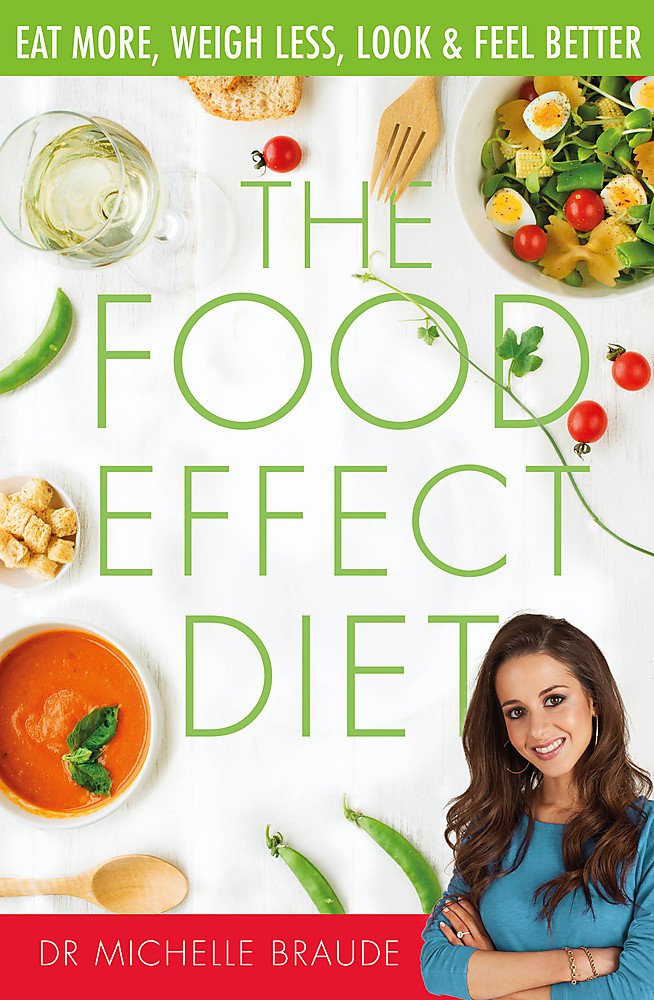We caught up with Dr and Author of “The Food Effect” Michelle Braude to discuss Gluten Intolerance.
About Dr Michelle Braude
Born in sunny South Africa and raised in London, Dr Michelle Braude qualified as a medical doctor (MBBS) from University College London (UCL), and completed a Bachelor of Science (BSc) degree in Nutrition at King’s College London. She also completed a year-long research project looking at “Dietary Variability and Methods to Assess Nutrient Intake in Crohn’s Disease” and carried out an elective period in Gastroenterology at the Whittington Hospital London. These provided further opportunities to increase her knowledge and gain practical experience in the wide range of clinical conditions covered by this area of medicine.
Being passionate about nutrition and healthy living, soon after graduating she decided to set up her own nutrition practice, The Food Effect, in 2012, which soon became hugely popular thanks to the results and word of mouth from many happy clients.
By combining her background in medicine, expertise in the science of nutrition, and passion for cooking and all things food, Michelle guides her clients and readers of her books, to long-lasting, effective change in their health, weight and overall wellbeing.

Is Gluten Intolerance real or imagined and how severe is it?
‘Wheat makes you fat’ and ‘removing gluten from your diet will help you lose weight are two popular nutrition myths you may have heard – but there is absolutely no medical or scientific basis for this to be the case for the average healthy individual.
The world of health and fitness is awash with misinformation. I see so many clients who have been exposed to repeated misinformation and have gone ‘gluten free’ for no real reason, with the result that they are then left with very restrictive diets and even a fear of certain foods, for no real health reason. (I am not referring to those who have a genuine intolerance to wheat or gluten, and might need to eliminate them accordingly.)
The myth that ‘wheat makes you fat’ is in part a result of the ‘clean-eating diet craze, which blames wheat for obesity and a host of other medical conditions, with people making unsubstantiated claims that cutting out gluten cured all their ailments. Yes, people who eat a lot of refined wheat flour in foods such as white bread, biscuits and pastries will indeed gain weight; and yes, if they cut out these refined foods and eat a more balanced diet (the type I prescribe to all my clients and advocate in both of my books) they’ll lose weight. But it’s not because of the wheat; it’s because they’ve improved their overall diet and meal balance, and cut out refined carbs and sugar.
There have been no scientific studies that support wheat as the culprit for our obesity epidemic, or that support a wheat-free diet for weight loss. The best thing you can do for weight loss is to replace refined white wheat (such as that in white bread, pastries, cakes, biscuits, and muffins made with refined white flour) with whole grains (like wholemeal bread, oats, brown rice, quinoa, and whole-wheat or brown rice pasta), to increase your fibre intake so that you’ll feel fuller for longer, have stable blood sugar levels and avoid cravings.
In terms of gluten, increasing diagnoses of Coeliac disease (a true gluten intolerance) has put gluten in the spotlight in recent years due to heightened awareness and better screening. However, many people mistakenly think that a gluten-free diet is the key to weight loss. This couldn’t be further from the truth.
People are blaming gluten for symptoms when it’s not the underlying cause. It’s trendy and cool, and many celebrities have endorsed gluten-free diets, so people jump on the bandwagon. Going on a gluten-free diet can be unnecessarily expensive, and will not guarantee better health or weight loss. There is no evidence to suggest that weight or fitness is improved in any way when following a gluten-free diet.
In fact, a recent study in the Journal of the American Medical Association showed that the growing popularity of gluten-free diets, endorsed by high-profile celebrities, has been driven by fashion choices rather than diagnosed health problems.
Researchers found that there has been no increase in the numbers of those suffering from Coeliac disease in the past six years, yet those on a gluten-free diet have risen threefold. The authors say that other reasons are also clearly driving the trend, including a misinformed public perception that gluten-free diets are healthier, and people are increasingly self-diagnosing themselves with ‘gluten sensitivity’ without having the typical symptoms of Coeliac disease. The study confirms that, unsurprisingly, the rising popularity of gluten-free diets is not accounted for by any increase in clinically proven cases of Coeliac disease.
The huge number of ‘gluten-free foods’ now available on supermarket shelves is also helping to boost the numbers of those shunning wheat. Although only 1% of the UK population are estimated to be affected by coeliac disease, 55% of the market is made up of non-sufferers. More than half the UK population is now buying gluten-free products, so savvy marketing also plays a huge role in influencing food choices.
Gluten-free diets are specifically designed for the 1% of the population that does have Coeliac disease and the 6% with non-Coeliac gluten sensitivity. For these people, foods containing gluten, such as wheat, rye and barley, can lead to a host of symptoms including gastrointestinal problems, skin rashes and anaemia.
For the rest of the population, however, gluten should not pose a problem. Whole-grain wheat, barley and rye are nutritional powerhouses; they are good sources of fibre, B vitamins, vitamin E, iron, magnesium and antioxidants – all of which are essential for healthy living and disease prevention.
Additionally, many gluten-free products are higher in calories and other unhealthy ingredients (such as sugar and palm oil) than their gluten-containing counterparts (as well as being much more expensive), but people are conned into thinking that anything with a ‘gluten-free’ label must be healthier and will help with weight loss, when this is nothing more than a myth.
My advice to everyone would be to stick to a healthy balanced whole-foods diet, with minimal highly processed foods, incorporating plenty of fresh vegetables, fruit, lean protein, unrefined carbohydrates and healthy fats (such as nuts, avocado, olive oil and nut butters). For those that do need to cut out or avoid gluten for medical reasons, I’d recommend steering clear of processed packaged “gluten-free” products (that are often filled with endless ingredients and junk!) and follow the same dietary advice above. I have many gluten-free recipes in both of my books and here are a few that I hope you’ll enjoy!
By: Dr Michelle Braude, founder of The Food Effect, www.thefoodeffect.co.uk
Author of The Food Effect Diet and The Food Effect Diet Vegan
Instagram: @thefoodeffectdr
